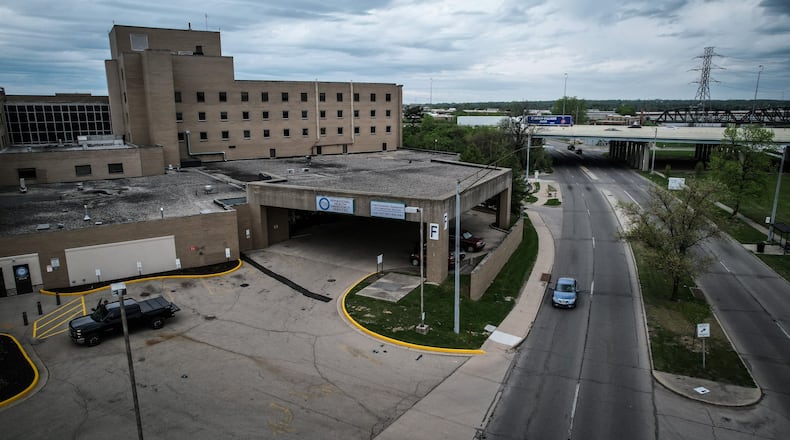RI International, a nonprofit mental health service provider, has been working with Alcohol, Drug Addiction, and Mental Health Services (ADAMHS) of Montgomery County to bring the crisis receiving center online.
“This is just one more example of how our collaborations and partnerships are providing state-of-the-art care for people experiencing a mental health crisis,” said Helen Jones-Kelley, executive director of Montgomery County ADAMHS.
Adults with short-term crisis needs, or those needing therapeutic support or connection to other resources can contact or walk into the center, where they’ll be greeted by a peer support employee and can also talk to nurses, psychology professionals and more.
Guests also will be offered other forms of care before coming to a casual setting to talk to mental and behavioral health workers, according to the nonprofit.
“One of our first medicines is food,” said RI International state director Vince Sabino. Guests may also be offered a hot shower and time for rest.
The center has been funded through a combination of federal and state grants and also a portion of Montgomery County levy dollars, according to Montgomery County ADAMHS strategic initiatives and communication director Tina Rezash.
First responders can also drop individuals off at the center, and other agencies can recommend the center to individuals seeking care.
Sabino said law enforcement and other first response agencies have been among the largest partner groups for the Montgomery County project, offering another tool for emergency personnel responding to calls.
In recent years, the cities of Dayton and Kettering, the Montgomery County Jail Coalition and others have been pushing for more mental health treatment and intervention options, rather than having law enforcement handle so many mental health crises.
Montgomery County Sheriff Rob Streck said the crisis center is an “important step forward” in supporting the local jail, hospitals and more.
“The Crisis Receiving Center will give law enforcement and county residents an additional option for individuals experiencing a behavioral health crisis to receive immediate assessment and care,” Streck said.
Guests can receive medication management, group activities, and discharge planning support with the assistance of therapists, peers and medication providers, the nonprofit said.
Sabino said the 7,500-square-foot center is expected to be operational by early summer.
The center is the final piece of a model that gives community members in crisis someone to call (the Montgomery County Crisis Now Hotline at 833-580-2255); someone to come to them (Mobile Crisis Response Teams) and somewhere to go (the crisis center).
Sabino said Montgomery County is the first in the nation to have all three prongs.
The Crisis Call Center and the Mobile Crisis Response Team opened at the beginning of last year in Montgomery County.
In 2022, the Crisis Call Center managed more than 12,000 calls and the Mobile Crisis Response Team was dispatched more than 600 times, according to Sabino.
“We’re on pace for 19,000 calls this year,” Sabino said.
A ribbon cutting for the facility will be held on Monday at 10 a.m.
About the Author

